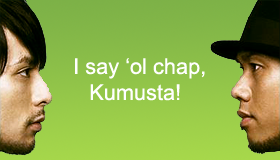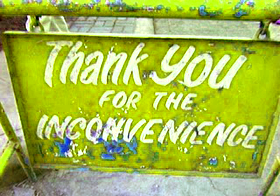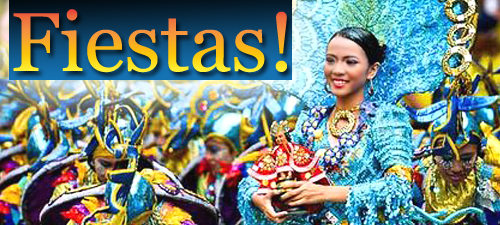PARLEZ-VOUS ANGLAIS?
 The New Zealand Immigration Service (NZIS) requires skilled mi-grant applicants who do not come from traditionally English-speak-ing countries to comply with a list of prerequisites such as being of good health, good charac-ter, are under the age of 56-years and have a reasonable standard of English to ensure they have the best opportunity to settle readily into work and life in New Zealand.
The New Zealand Immigration Service (NZIS) requires skilled mi-grant applicants who do not come from traditionally English-speak-ing countries to comply with a list of prerequisites such as being of good health, good charac-ter, are under the age of 56-years and have a reasonable standard of English to ensure they have the best opportunity to settle readily into work and life in New Zealand.
Principal applicants and their partners must have an English-speaking back-ground, or have reached an overall IELTS (International English Language Testing System) band core of 6.5. The system, tests English proficiency ac-ross the globe through ESOL (English for Other Speakers of Other Languages) exam-inations. ESOL is offered in 800 test centres and locations in over 130 countries.
Test writers from different English-speaking countries develop IELTS content so it reflects real-life situations. Ongoing research ensures IELTS remains fair and unbiased. That way, it ensures applicants passing their tests meet a mini-mum standard of English to enable successful settlement in countries like New Zealand.
ENGLISH NOT FROM ENGLAND?
 English, ironically, doesn’t come from England. It is a West Ger-manic language (which traces its roots to ancient Persia and India) that arose in Anglo-Saxon king-doms like England. It belongs to a family of languages that include German, Dutch, Afrikaans, the Frisian languages, and yes, even Yiddish.
English, ironically, doesn’t come from England. It is a West Ger-manic language (which traces its roots to ancient Persia and India) that arose in Anglo-Saxon king-doms like England. It belongs to a family of languages that include German, Dutch, Afrikaans, the Frisian languages, and yes, even Yiddish.
Following the economic, political, military, scientific, cultural, and colonial in-fluence of the British Empire from the 18th century and of the United States since the mid-20th century, it has been widely dispersed around the world. It has become the leading language of international discourse, and has acquired use as the lingua franca (or working language) in many countries.
For example, English is the vernacular (or, mother) tongue in the United King-dom, but is used as a vehicular (lingua franca) language in the Philippines. It is the third most natively spoken language in the world, after Mandarin Chinese and Spanish, in that order.
FOR ITS LITERARY VALUE ONLY
 But how many kinds of ‘English’ are there really? Is English as spoken in New Zealand exactly that as used in the United King-dom, Canada, the United States, India, Singapore, Malaysia, or for that matter, the Philippines?
But how many kinds of ‘English’ are there really? Is English as spoken in New Zealand exactly that as used in the United King-dom, Canada, the United States, India, Singapore, Malaysia, or for that matter, the Philippines?
Some say English is a strange lan-guage and none more so than by a man named Richard Lederer.
Mind you, Lederer is no ordinary speaker of English. He entered Haverford College as a pre-med student but discovered he was reading chem-istry books for their literary value. He switched to become an English major instead and attended Harvard Law School reading law cases for their (and once again) literary value.
So rather than fight his inclinations, he switched to a Masters of Arts and Tea-ching program at Harvard leading to a position at St. Paul’s School in New Hampshire, where he taught English for 27-years while earning a Ph.D. in Eng-lish and Linguistics from the University of New Hampshire. English, it seems, is what has inspired him to write books about it.
IT”S A CRAZY LANGUAGE
Taking stock of what Lederer has written about this language, selected below are passages from his many books on the subject:
* * * * *
“We’ll begin with a box, and the plural is boxes, but the plural of ox becomes oxen, not oxes. One fowl is a goose, but two are called geese, yet the plural of moose should never be meese. You may find a lone mouse or a nest full of mice, yet the plural of house is houses, not hice.
If the plural of man is always called men, then shouldn’t the plural of pan be called pen? If I speak of my foot and show you my feet, and I give you a boot, would a pair be called beet? If one is a tooth and a whole set are teeth, why shouldn’t the plural of booth be called beeth? Then one may be that, and three would be those, yet hat in the plural would never be hose, and the plural of cat is cats, not cose.
We speak of a brother and also of brethren, but though we say mother, we never say methren. Then the masculine pronouns are he, his and him, but imagine the feminine: she, shis and shim! I would like to add that if people from Poland are called Poles, the British Brits, then the people from Holland should be called Holes and the Germans Germs!”
* * * * *
“There is no egg in eggplant nor ham in hamburger; neither apple nor pine in pineapple. English muffins weren’t invented in England. We take English for granted, but if we explore its paradoxes, we find that quicksand can work slowly, boxing rings are square, and a guinea pig is neither from Guinea nor is it a pig.
And why is it that writers write but fingers don’t fing, grocers don’t groce and hammers don’t ham? Doesn’t it seem crazy that you can make amends but not one amend. If you have a bunch of odds and ends, and get rid of all but one of them, what do you call it?
Why is it that when we transport something by truck, it’s called a shipment, but when we transport something by ship, it’s called cargo? We have noses that run and feet that smell. We park in a driveway and drive in a parkway. And how can a slim chance and a fat chance be the same, while a wise man and a wise guy are opposites?”
* * * * *
“Why are people who ride motorcycles called bikers and people who ride bikes called cyclists? And why do we call it newsprint when it contains no printing but when we put print on it, we call it a newspaper?
If teachers taught, why didn’t preachers praught? If a vegetarian eats vegetables, what does a humanitarian eat? Sometimes I think all the folks who grew up speaking English could be running the danger of being called verbally insane. In what other language do people recite at a play and play at a recital?”
* * * * *
“Language is like the air we breathe. It’s invisible, inescapable, indispensable, and we take it for granted. But, when we take the time to step back and listen to the sounds that escape from the holes in people’s faces and to explore the paradoxes and vagaries of English, we find that hot dogs can be cold, darkrooms can be lit, homework can be done in school, nightmares can take place in broad daylight while morning sickness and daydreaming can take place at night, tomboys are girls and midwives can be men, hours – especially happy hours and rush hours, often last longer than sixty minutes, quicksand works very slowly, silverware and glasses can be made of plastic and tablecloths of paper, most telephones are dialed by being punched (or pushed?), and most bathrooms don’t have any baths in them.
And why is it that a woman can man a station but a man can’t woman one, that a man can father a movement but a woman can’t mother one? And why, pray tell, does lisp have an s in it?”
* * * * *
“Let’s face it – English is really a crazy language. You have to marvel at the uni-que lunacy of a language in which your house can burn up as it burns down, in which you fill in a form by filling it out, and in which an alarm goes off by going on. And, in closing, if Father is Pop, how come Mother’s not Mop?”
ENGLISH AS ISPOKEN BY FILIPINOS
So now we come to the best part – English as ‘ispoken’ by Filipinos. Taking some license and carrying English beyond its current borders than most other native speakers elsewhere in the world dare to, Filipinos have artfully integrated it into their own native tongue with a twist and a dash of relish. You’ll find this par-ticular form written in board signs of retail shops and in advertising of trades and professions in various locales across the Philippines. Here are a few exam-ples of what we mean:
• A taxicab: Income Taxi
• A car-repair shop: Bangga Ka ‘Day!
• A lawyer’s extension office: Nota Republic
• A laundry in Manila: Summa Cum Laundry
• A kambingan (goat meat stall): Sa Goat Kita
• A shoe repair shop in Marikina: Dr. Shoe-Bago
• A squid stall in a wet market: Pusit to the Limit
• A Hair Salon in Makati City: Hair We Go Again
• A store selling feeds for chicken along Sucat Road: Robocock
• A wholesaler of balut (duck eggs) in Sto. Tomas, Batangas: Starduck
• A shoe repair shop along Commonwealth Avenue, Quezon City: Shoeperman:
..We will heel you, save your sole, and even dye for you!
Postscript: We understand that some of our site visitors are not speakers of Pilipino, so we provide you a handy Pilipino-English language translation service link (look for the Google Translate Panel on the sidebar) for you to use in order to discover the meaning of some the hilarious play of words Filipinos engage in when murdering the English language just as everyone else perhaps does in the world.

 During the Spanish
During the Spanish





























